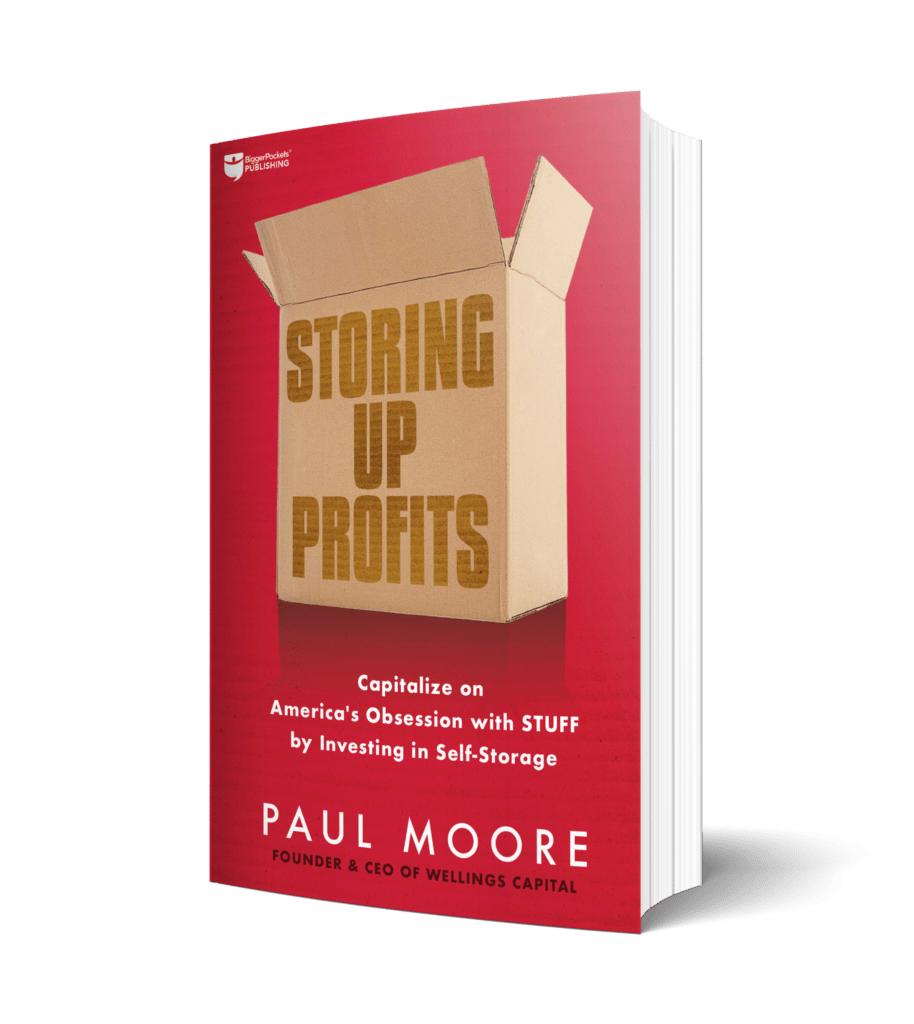Have you been to Texas lately? I was there last month, and you should really know what’s happening in the real estate world there.
Texas radio shows and billboards are covered with ads for real estate investments. But it’s not what you might expect.
These are not ads to find investors. These are ads to find and train syndicators.
The rise of amatuer real estate syndicators
Multiple competing programs have trained tens of thousands of “regular people” to become real estate syndicators and there’s nothing wrong with that.
I’m all for it, in fact! I’m thrilled that these opportunities exist. We all started in a similar place, after all.
However, I’ll admit that I’m nervous about it.
I’m nervous because some of these new syndicators are raising hundreds of millions of dollars from investors all over the United States, then reselling their deals to the next trainee for substantial profits within 18-30 months.
The problem with that? Most of these real estate syndicators haven’t tasted the bitter gall of a downturn. Their inexperience has led them to make broad statements like:
- “It’s different this time.”
- “Rent prices will always increase.”
- “Everyone needs a place to live.”
- “They’re not making any more land.”
That’s the same sort of presumptuous language I heard leading up to 2008. No, I’m not predicting a repeat of 2008’s financial crisis, but I am warning that hubris often leads to disaster.
A broker told me recently that he routinely markets deals where multiple students from the same program bid against each other. The property winds up selling 20% higher than the original asking price.
Then, they rinse and repeat, selling to the next person for even more.
It sounds great and all, but did you ever play musical chairs as a kid? At some point, the music stops. What happens then?
My message: In a world where amateurs and experts profit equally, it’s hard to know who the experts really are.
If you passively invest in syndicated deals and trust the operator with your hard-earned money, I’m guessing that you want to partner with operators who are true experts.
Experts who:
- Have been in the real estate business for a long time.
- Know how to spot intrinsic value and extract it on behalf of their investors.
- Acquire off-market deals that brokers and successful amateurs will never see.
- They’re better operators than promoters—which is why you haven’t heard of most of them.
True expertise in action
My firm and I just invested with a true expert. He’s closing on a self-storage conversion deal in an underserved market near Boston. This is a highly visible property on a main road in a booming area. Its been operating as a shopping center for decades, but as its retail sales have declined, so has its profitability.
This real estate syndicator has a long and successful history in self-storage. The principals assembled and sold a portfolio of 27 storage assets to an institutional investor for over $100 million several years ago. As a result of their relationships in the market, they had access to this deal before it went public.
Here’s why we love this deal. The conversion and operation of this property as a self-storage facility conservatively project internal rates of return (IRR) well over 20%. But that’s just for the storage business. The property also includes a number of other valuable opportunities that will significantly increase returns.
For example:
- The property has several acres of valuable riverfront that can be developed as pricey riverfront condos or multifamily units.
- The parking area can be sold off as multiple outparcels to restaurant or multifamily developers.
- Some of the existing retail sections can be rehabbed to raise income and value.
Below is a map of the property:

Remember, all of these opportunities exist on top of the projected 20%+ IRR from storage. And, because these three opportunities have essentially no cost basis, their risk is low and the return potential is relatively high.
We didn’t find this amazing deal through a radio ad, a billboard, or a widely promoted website. Of course, it’s possible to find great investment opportunities that way. But we’ve found that many of the best deals are not available to the general public. These deals are found from building meaningful relationships with experienced professionals.
So, how do we find and vet these “experienced professionals”, anyway?
I’m glad you asked. Brian Burke is an experienced pro. He’s been investing in real estate for over 30 years. He’s managed over 750 residential deals and over 3,000 multi-family doors.
Brian, like me, was concerned about the rush to the top in this explosive market. He partnered with BiggerPockets Publishing to release a book for passive investors who want to do their due diligence on syndicated operators and deals. It’s aptly titled “The Hands-Off Investor” and I highly recommend reading it.
Finding experienced pros can be as easy as utilizing BiggerPockets’ massive community. You should also check out real estate syndicator reviews and community forums online. This is a bit more challenging than checking out restaurants on Yelp, but there are plenty of great resources out there to get you started.
You can use Google, too. Find a company and look up their leadership team on Google followed by words such as “scam, SEC violation, crime,”. You might be surprised by some of the results you find. Whenever I invest, I go as far as purchasing detailed background and criminal checks.
Another example of a true real estate pro is Jim Pfeifer, who has been investing in syndications for years. He created a community called Left Field Investors to review and recommend syndicated passive investments. Their goal is to help investors create financial freedom through finding the right syndicators and investments.
Additionally, Ian Ippolito has a great passive investor forum as well. Ian sold his tech firm and started looking for real estate investments nearly a decade ago. He recognized the lack of democratized platforms dedicated to honest conversations between crowdfunding investors, so he created The Real Estate Crowdfunding Review. While focused on crowdfunding, his forum is not limited to crowdfunded deals. There are plenty of reviews on all types of real estate syndicators and opportunities.
Final thoughts on experts and amateurs
I want to be clear, there is no shame in being an amateur. BiggerPockets is a powerful gathering place for investors of all types, backgrounds, and experience levels to share ideas and grow together.
But, I also want to emphasize that the real estate game may be harder than it looks right now. Sure, it might have been relatively easy to make significant returns from our active and passive deals over the past 12 years. The rising tide has truly lifted all boats.
But if something can’t go on forever, it will eventually end (not my witty line, but I’m happy to use it). Trees don’t grow forever. Musical chairs is fun, but the music will eventually yield to silence. You get the idea.
If you’re growing in your role as an active real estate investor or commercial syndicator, keep up the great work! Continue learning, building your team, talents, technology, and track record.
But please don’t mistake the wonderful rising market we’ve all enjoyed as a sign that you can’t make a bad deal. Use this time to learn with the wind at your back, but be constantly aware that the wind could shift on a dime.
Be prepared for that day. Make sure you’ve structured your investments to weather the storm. Don’t overpay for deals and please don’t take investor capital if you do.
If you’re a passive investor, I’d advise that you look carefully at every syndicator you plan to invest with. Check out their team and track record. Ask them hard questions.
Try to determine if this is the type of person you would want to be in trouble with for a decade if the market goes south. Even if things run smoothly, the character of your business partners is of utmost importance.
A great real estate syndicator can turn a mediocre deal into a winner. A lousy one can ruin the very best.
There will come a day when it’s easy to see the difference between experts and successful amateurs. Until then, I urge you to cut through the noise and partner with expert operators who provide downside protection and upside profits throughout all market conditions.
What about you? Have you had a hard time distinguishing experts from successful amateurs? What are you doing to protect yourself from the eventual downturn that impacts every investor at some point?
